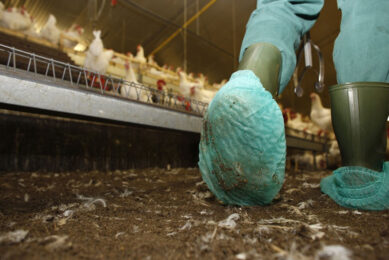NZ aims to combat campylobacter in broilers

The New Zealand Food Safety Authority (NZFSA) is taking the lead for the International Codex Committee on Food Hygiene (CCFH) in developing standards to combat campylobacter in broiler chickens, it says.
The Codex guidelines are often used by international bodies, such as the World Trade Organization, to settle trade disputes over food safety issues.
New Zealand had the world’s highest rate of campylobacter infection, which can be caused by eating raw or undercooked poultry.
NZFSA’s science director Steve Hathaway says New Zealand’s cutting-edge research and innovative controls have made huge inroads into decreasing the country’s campylobacter infection rate.
“New Zealand has got a reputation for getting stuck in and really reducing what is a serious health problem worldwide. We have worked closely with the poultry industry over the past 3 years to research and develop campylobacter controls and other countries see there is a lot to learn from us as their focus on food-borne campylobacter infection increases.”
In 2006, the effects of major food-borne illnesses cost New Zealand $86 mln in lost productivity. It was estimated 90% of that cost was due to campylobacter infection. Just two-and-a-half years later, the NZFSA’s campylobacter risk management strategy has made a 50% reduction in cases of campylobacter infection caused by food. The annual saving to society is estimated to be around $36 mln, reports NZFSA.
While New Zealand heads up the Codex work on campylobacter, Sweden will lead parallel guidelines for Salmonella. When the combined international standard is completed, countries belonging to Codex will be able to use the guidelines and examples to control the effects of both bacteria in their own poultry industries.
The guidelines are expected to be finalised next year after the CCFH meets in November.
Source: New Zealand Food Safety Authority (NZFSA)












